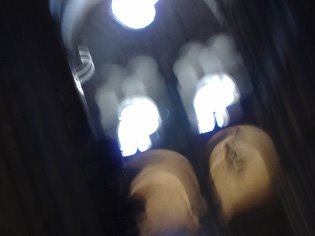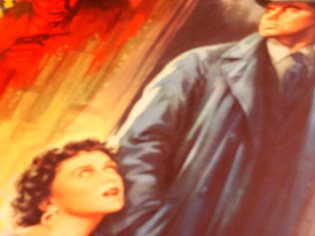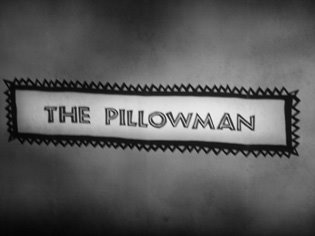I want to tell you a story

If I did know, I probably wouldn't feel the need to do it. All I can say, and I say it with utmost certainty, is that I have felt this need since my earliest adolescence.
" A photograph is a secret about a secret. The more it tells you the less you know. " Diane Arbus



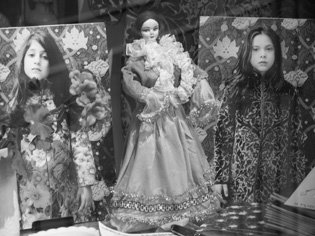







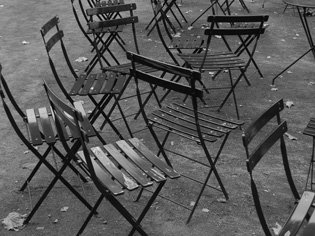
“ All right. The story. The story of the doll... It’s the last year of Kafka’s life, and he’s fallen in love with Dora Diamant, a young girl of nineteen or twenty who ran away from her Hasidic family in Poland and now lives in Berlin. She’s half his age, but she’s the one who gives him the courage to leave Prague – something he’s been wanting to do for years – and she becomes the first and only woman he lives with. He gets to Berlin in the fall of 1923 and dies the following spring, but those last months are probably the happiest months of his life. In spite of his deteriorating health. In spite of the social conditions in Berlin: food shortages, political riots, the worst inflation in German history. In spite of the certain knowledge that he is not long for this world.
Every afternoon, Kafka goes out for a walk in the park. More often than not, Dora goes with him. One day, they run into a little girl in tears, sobbing her heart out. Kafka asks her what’s wrong, and she tells him that she’s lost her doll. He immediately starts inventing a story to explain what happened. ‘Your doll has gone off on a trip,’ he says. ‘How do you know that?’ the girl asks. ‘Because she’s written me a letter,’ Kafka says. The girl seems suspicious. ‘Dou you have it on you?’ she asks. ‘No, I’m sorry,’ he says, ‘I left it at home by mistake, but I’ll bring it with me tomorrow.’ He’s so convincing, the girl doesn’t know what to think anymore. Can it be possible that this mysterious man is telling the truth?
Kafka goes straight home to write the letter. He sits down at his desk, and as Dora watches him write, she notices the same seriousness and tension he displays when composing his own work. He isn’t about to cheat the little girl. This is a real literary labor, and he’s determined to get it right. If he can come up with a beautiful and persuasive lie, it will supplant the girl’s loss with a different reality – a false one, maybe, but something true and believable according to the laws of fiction.
The next day, Kafka rushes back to the park with the letter. The little girl is waiting for him, and since she hasn’t learned how to read yet, he reads the letter out loud to her. The doll is very sorry, but she’s grown tired of living with the same people all the time. She needs to get out and see the world, to make new friends. It’s not that she doesn’t love the little girl, but she longs for a change of scenery, and therefore they must separate for a while. The doll then promises to write the girl every day and keep her abreast of her activities.
That’s where the story begins to break my heart. It’s astonishing enough that Kafka took the trouble to write that first letter, but now he commits himself to the project of writing a new letter every day – for no other reason than to console the little girl, who happens to be a complete stranger to him, a child he ran into by accident one afternoon in a park. What kind of man does a thing like that? He kept it up for three week, Nathan. Three weeks. One of the most brilliant writers who ever lived sacrificing his time – his ever more precious and dwindling time – to composing imaginary letters from a lost doll. Dora says that he wrote every sentence with excruciating attention to detail, that the prose was precise, funny, and absorbing. In other words, it was Kafka’s prose, and every day for three weeks he went to the park and read another letter to the girl. The doll grows up, goes to school, gets to know other people. She continues to assure the girl of her love, but she hints at certain complications in her life that make it impossible for her to return home. Little by little, Kafka is preparing the girl for the moment when the doll will vanish from her life forever. He struggles to come up with a satisfactory ending, worried that if he doesn’t succeed, the magic spell will be broken. After testing out several possibilities, he finally decides to marry off the doll. He describes the young man she falls in love with, the engagement party, the wedding in the country, even the house where the doll and her husband now live. And then, in the last line, the doll bids farewell to her old and beloved friend.
By that point, of course, the girl no longer misses the doll. Kafka has given her something else instead, and by the time those three weeks are up, the letters have cured here of her unhappiness. She has the story, and when a person is lucky enough to live inside a story, to live inside an imaginary world, the pains of this world disappear. For as long as the story goes on, reality no longer exists. “
(The Brooklyn Follies, Paul Auster)


